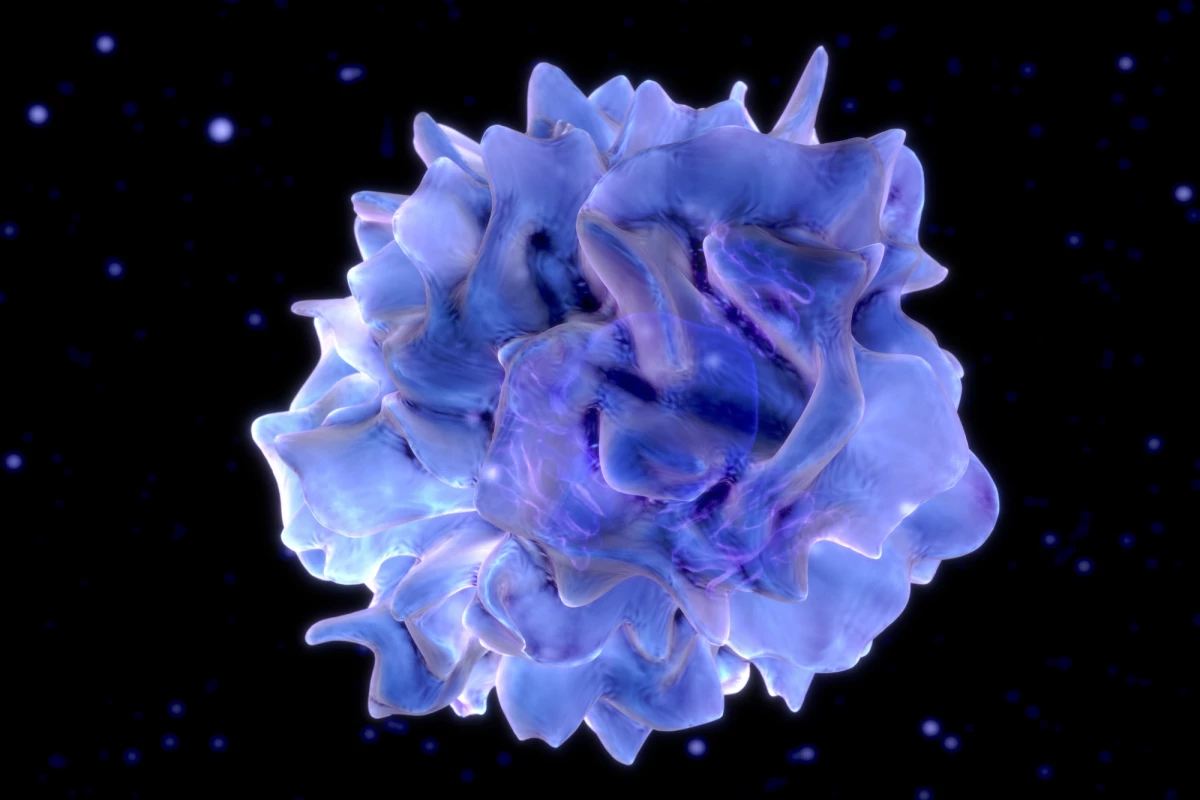New research has discovered that a fundamental nutrient found in cells is key to maintaining the body’s cancer-destroying immune response. The discovery may lead to more effective ways of treating the disease.
The adaptive immune system, also called acquired immunity, uses specific antigens to mount a strategic immune response. Unlike the innate immune system, which attacks based on identifying general threats, adaptive immunity is activated by exposure to invaders such as cancer, and uses immunological memory to learn about the threat and respond accordingly.
Some cancer cells are able to evade the body’s adaptive immune response, particularly cancer-killing T cells, although the mechanisms underpinning the process are poorly understood. What is known is that dendritic cells (DCs) are a unique system of cells that ‘turn on’ T cells, priming them to fight cancer.
New research by St Jude Children’s Research Hospital has looked closely at how cancer cells and DCs interact and discovered that a fundamental energy-producing nutrient plays a key role in maintaining the immune system’s ability to destroy tumors.
The nutrient in question is glutamine. Glutamine performs many functions in the body, but one of its more important ones is providing fuel for immune cells. It’s consumed in high amounts by these cells and by cells undergoing rapid division, such as cancer cells.
The researchers found that within the microenvironment of the tumor, immune cells and cancer cells competed for glutamine. If it’s monopolized by cancer cells, less glutamine is left over for the DCs, meaning they may not have the energy needed to rally T cells to attack the tumor.
“It’s a nutrient tug-of-war between tumor cells and immune cells,” said Hongbo Chi, corresponding author of the study. “If tumor cells use all the available glutamine, then a specialized immune cell type known as the dendritic cell is starved of glutamine, leading to impaired anti-tumor immune function. But if we can supplement enough glutamine to the tumor microenvironment, that will inhibit tumor growth because dendritic cells will use it and activate the adaptive immune response.”
The researchers found that supplementing glutamine into the tumor microenvironment improved the DCs’ ability to activate T cells and severely reduced tumor growth. This study is the first to identify a nutrient as a major signal between cancer cells and DCs in the tumor microenvironment.
“Even though T cells are the cornerstone for anti-cancer immunity, they cannot do the job by themselves,” said Chi. “We can think of dendritic cells as the driver and the T cell as the car. If you do not have a driver, the car will not move. Moreover, nutrients like glutamine serve as the license for the driver.”
The researchers say their discovery could improve current cancer treatments.
“We are very excited to establish the link between glutamine, therapeutic effect and dendritic cells,” said Chuansheng Guo, lead author of the study. “It’s critical for the efficacy of immune checkpoint blockade and adoptive cell transfer therapy.”
The immune system distinguishes between normal cells and cancer cells by using ‘checkpoint’ proteins on immune cells. The checkpoints act like a switch that needs to be turned on to start an immune response. Cancer cells can use checkpoints to send deceptive signals, telling T cells that they’re not harmful, and immune checkpoint blockers stop the cancer cells from doing this. In adoptive cell transfer, T cells, either from the patient or another individual, are given to a patient to help their body fight diseases such as cancer.
The study also found that two proteins, FLCN and SLC38A2, respond to or take up glutamine in DCs and that, when removed, the anti-tumor effect of glutamine supplementation was eliminated. The researchers say these proteins could be potential drug targets.
“This paper provides a proof of concept that nutrients could act synergistically with checkpoint inhibitors for tumor treatment as a new strategy for combination therapy,” Chi said.
The study was published in the journal Nature.





